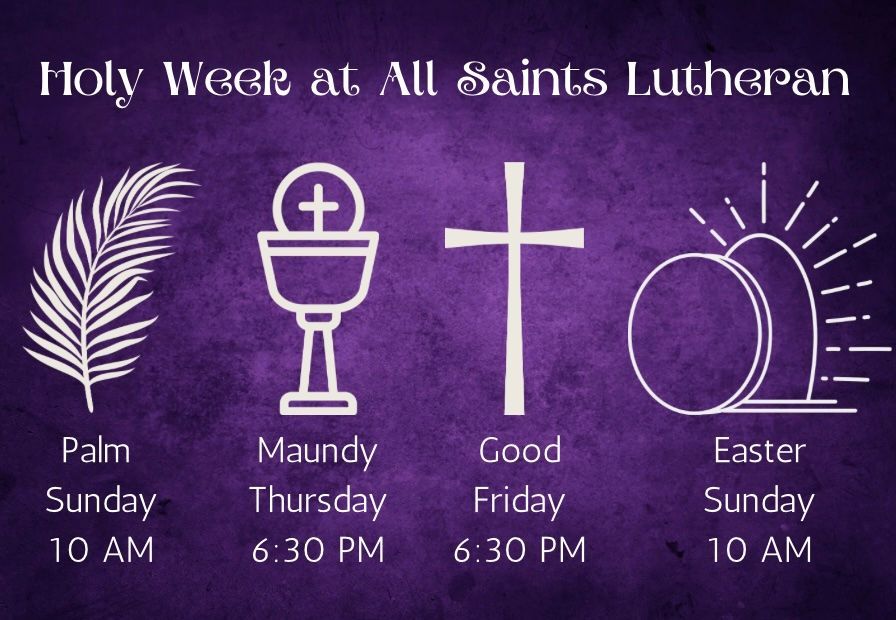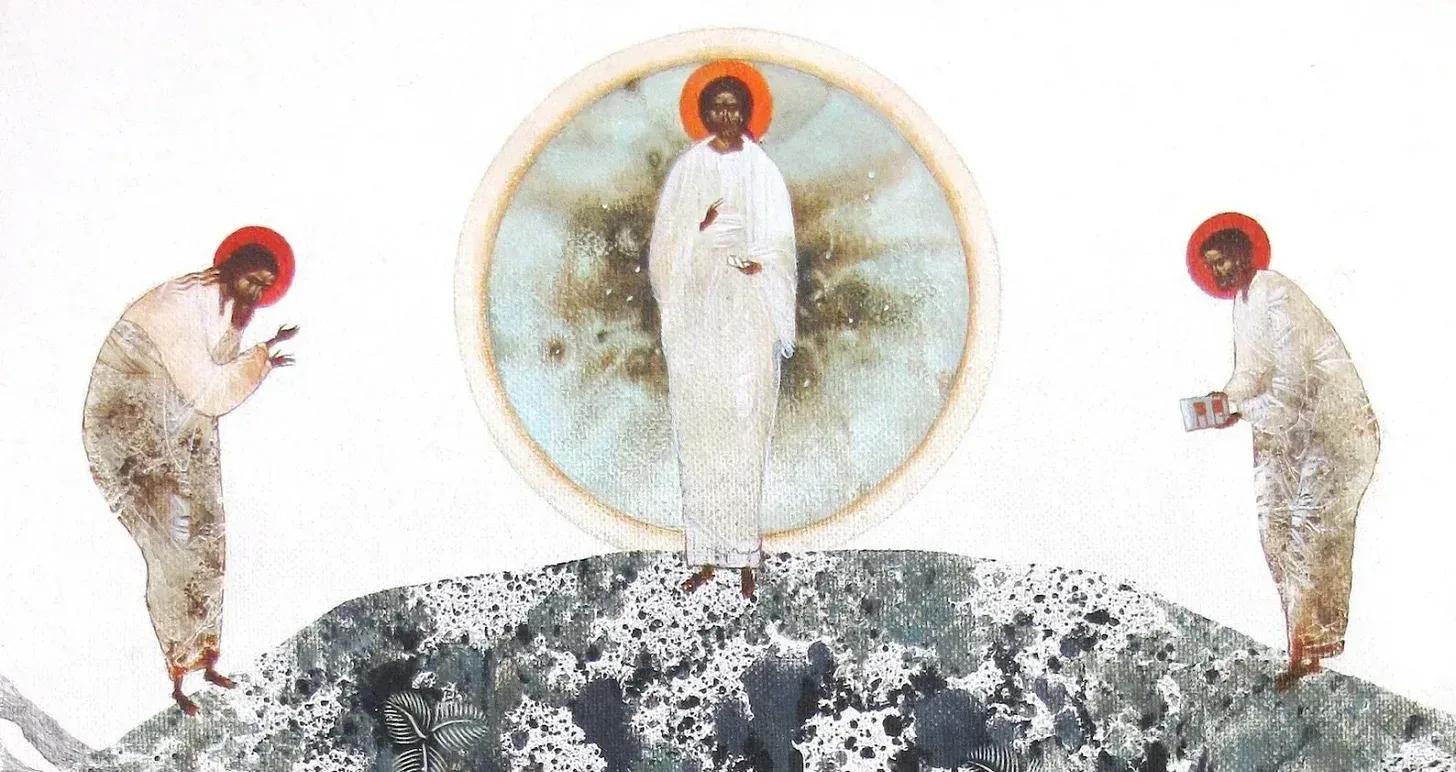Easter 2B, April 7, 2024
Grief has this funny way
of hearing bad news
and waiting for the punchline.
Waiting for someone to yell
“Psych!!”
or “JK”
or “April Fool’s!!”
or “Gottcha!!”
and when it never comes,
we’re left to our own devices
in trying to come to terms with the bad news.
Our brains seem to do this on autopilot,
hearing bad news with disbelief,
shock,
and what Elisabeth Kubler-Ross called
denial;
a state of self-protective cognitive blindness
to some new, grim reality.
Our brains prefer stasis,
same ol’, same ol’,
routine.
Suddenly confronted with loss
or change,
especially negative change,
our brains sort of buffer,
lagging to load this new version of reality.
Abusers know this about their victims
and they try keep them in the denial phase,
explaining away the trauma,
giving their victims a way to reframe the abuse
or to pretend it’s not happening at all.
The term for this is gaslighting.
This can even happen on a collective level,
from institutions,
from government and politicians,
from corporations and media outlets,
even from the Church
and her representatives,
you can get the message that your trauma wasn’t real,
that you should just get over it,
that you maybe even deserved it.
I think one way that the church
has engaged in gaslighting
is by giving this morning’s gospel lesson
the title
“Doubting Thomas.”
When the risen Jesus appears to the disciples
and breathes on them the Holy Spirit,
these locked-in ones
become the sent-out ones,
and they take as their first mission
finding Thomas.
We don’t know from the text
why Thomas wasn’t there
or where he was instead.
By the beginning of the next chapter
he is on a fishing boat
with some of the other disciples.
Prior to the crucifixion,
the Gospel of John
only gives us two other mentions of Thomas
neither of them his call story,
like we have for Peter, Andrew, Nathaniel, and Phillip.
Wherever he was,
the others found him.
But Thomas has a hard time
wrapping his head,
and maybe his heart,
around what has happened.
We don’t know when Thomas walked away
from the unfolding tragedy of Jesus’ final hours,
but imagine what he might have seen:
Was Thomas there for the arrest,
and maybe he’s feeling guilty
he couldn’t stay awake,
or that he abandoned Jesus in the end
like everyone else?
Was Thomas there for the beating and the crucifixion
and maybe he’s just trying
not to see that mangled face
every time he closes his eyes?
Was Thomas there for the earthquake,
and the blackened sky,
and the spear,
and maybe he’s mourning
the death of Jesus,
the death of the dream that this was the Messiah,
that this was their liberation from Rome?
You see,
I don’t think
that Thomas so much doubted
as he refused to be gaslit.
All the heartache
and grief,
and guilt,
and disappointment
couldn’t be undone so quickly
by the testimony of someone else.
He needed to experience it for himself.
He needed the news
to be as real to him
as everything else he had seen,
and heard,
and done.
And Jesus obliges.
Jesus comes to Thomas
and says,
“Look, Thomas.
Put your hand in my hand,
put your fingers in my side.
Thomas,
I know your wounds are as real as mine
as deep as mine.
Thomas your wounds
are mine,
and mine are yours.
What God has done for me
God is doing for you.
Resurrection will happen in a moment,
but healing takes time.”
Beloved,
your pain is real,
your trauma is real,
your guilt
and grief,
and disappointment,
is very real.
There is no going back to normal
in the face of these things,
because “normal” is gone,
and anyone who says
that your pain, trauma, guilt, or grief is not real,
that it shouldn’t hurt like it does,
that you should be over it by now,
that all you’ve been through
is somehow your fault—
anyone who says these things
is an abuser
trying to take advantage
of keeping you in denial.
And any institution,
any government or politician,
any corporation or media outlet,
any iteration of the Church
or her representatives
who says you can avoid pain, trauma, guilt, or grief
if you just give them the power
to shape your reality
is making a promise they cannot keep,
and quite likely,
that they have no intention of keeping.
Pain, trauma, guilt, and grief
cannot be avoided,
only confronted.
And the story of Thomas
promises that when they are confronted
they can be redeemed.
Resurrection comes in a moment,
but healing takes time.
It will feel like crawling out of the grave.
It will expose our scars
and still-open wounds
to sunlight and scrutiny.
It will call us out
and it will send us out.
It will require of us
a radical commitment to reality as it is,
in all its gnarly, disfigured horror.
It will invite us to feel its woundedness—
and our own woundedness.
It will show up in the places we least expected,
behind the very doors we locked to keep it out.
But,
it will also speak peace into our fear,
breathe the breath of life into our hollow cheeks,
and turn our mourning into wonder and awe.
And Jesus’ words to Thomas,
“Blessed are those who have not seen
and yet come to believe,”
those are for us.
Those words are for those of us
who have not witnessed such a resurrection.
Those word are for those of us
who must have been absent
when everyone else seemed to get it.
Those words are for those of us
who struggle now to believe what we have heard
in the face of what we have witnessed.
Pain, trauma, guilt, and grief
are real
and cannot be avoided,
But they are not final.
The God of Reality includes our pain, trauma, guilt, and grief,
but the good news of the resurrection
is that the God of Reality also transcends
our pain, trauma, guilt, and grief.
No sorrow, suffering, or shame
will ever be wasted by our God.
Rather, in community with those who have been witnesses,
God will transform all our sorrow, suffering, and shame
into our own experience of the living Christ,
risen yet scarred,
speaking peace
and breathing blessing.
Then we too will become the sent-out ones,
telling others the good news,
“We have seen the Lord!”
Amen.










